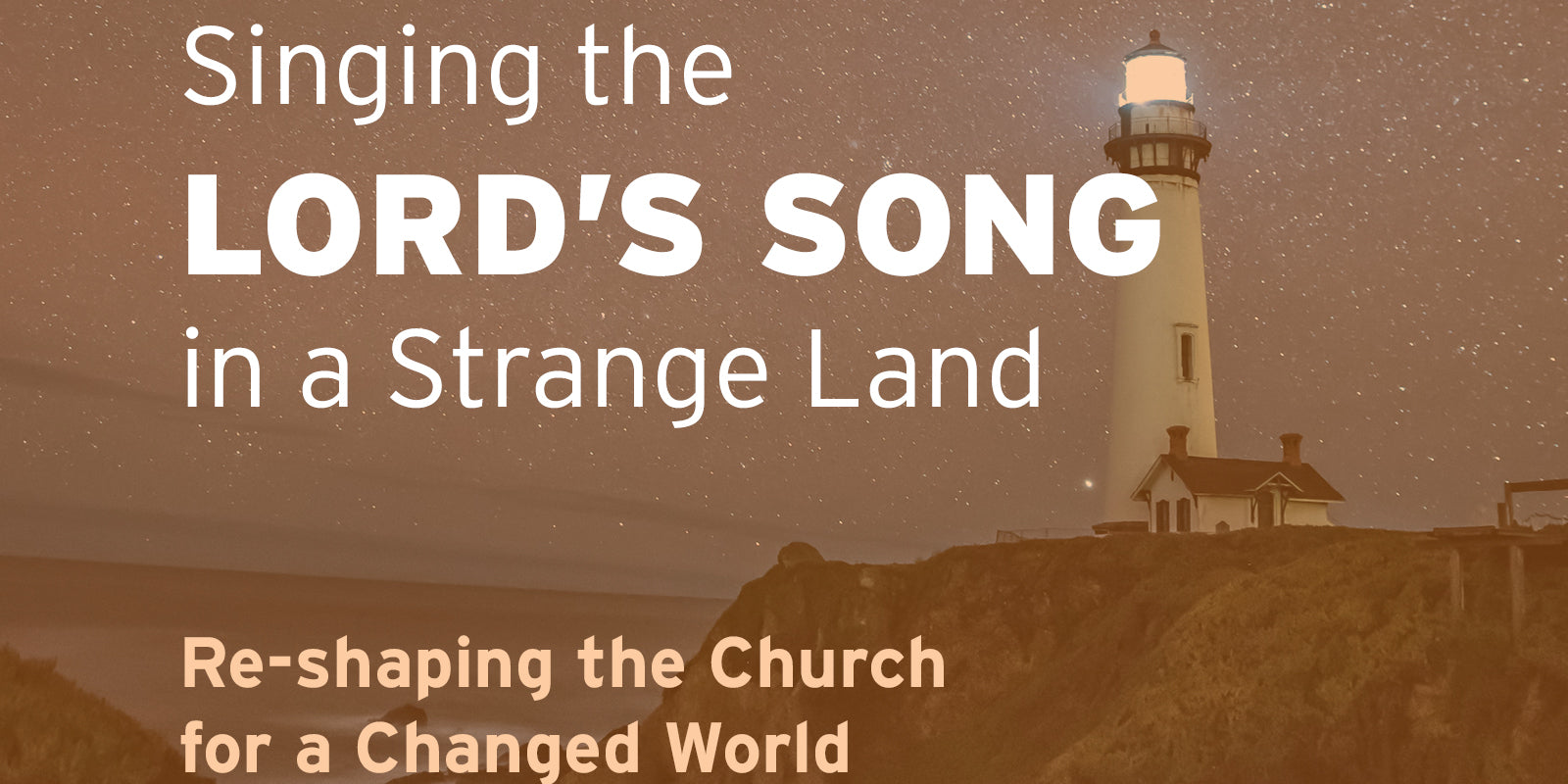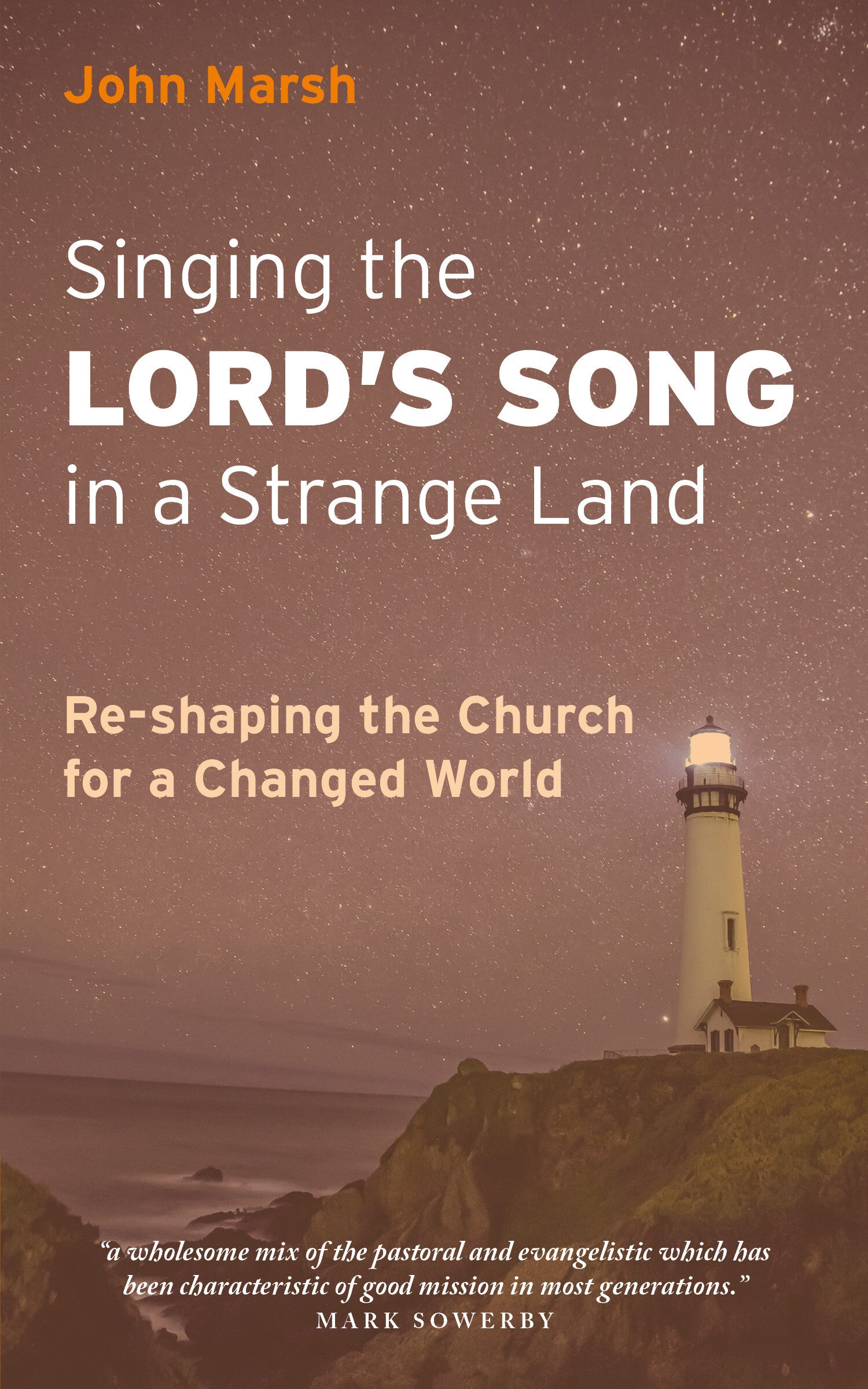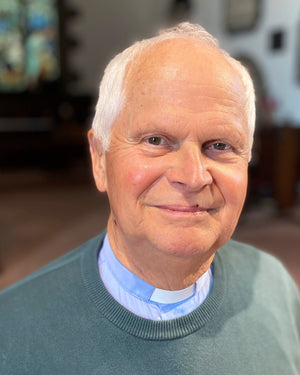GUEST BLOG: John Marsh introduces us to his new book Singing the Lord’s Song in a Strange Land and discusses the importance of preaching the faith afresh in each generation if the Church is to buck the trends of decline.
Church of England Sees Dramatic Decline
Church of England’s £240m Spend Failed to Stop Decline
Anglican Churches in the UK Shrinking in Size
Church Decline Even Worse Than We Realised
Church of England “R” Number Suggests Bleak Future
The Church That Was: the Decline and Fall of the Church of England
The above are a random selection of headlines among the many which can be accessed with a quick google search. This is a reality which it is difficult to avoid, uncomfortable though it is for those of us who belong to the Church of England. A whole variety of contributing factors have been offered to explain this decline: fewer clergy, dwindling, ageing congregations, lack of finance, old, expensive church buildings, increasing competition from other activities to attract would-be congregants, and many others.
However, in my book Singing the Lord’s Song in a Strange Land I suggest an alternative reason for decline which I have heard less often mentioned. It is flagged up in a slightly obscure bit of Church of England liturgy which has haunted me as I have written. It is found in the Preface to the Declaration of Assent, words which the Bishop says whenever a new minster is ordained or authorized, and whenever he or she is licensed to a new role. Having been reminded that the Church of England professes the faith “which is uniquely revealed in the Holy Scriptures”, we hear the challenge that “the Church is called upon to proclaim [this Faith] afresh in each generation.” I acknowledge that this is not a new principle but has always been the core task of the church, reflecting the commission Jesus gave his disciples, recorded at the end of Matthew’s gospel, to go and make disciples. The trouble is, I believe, that we have not always been very good at doing it. I write:
At times, we have been guilty of adjusting the faith, to make it more palatable or maybe more P.C., so it doesn’t offend or upset those we are seeking to draw in. Conversely, there have been times when we, while being true to the faith as revealed, have failed to communicate it in ways in which our generation can relate to it and connect with it: we have all-too-often used outdated language, imagery and media in our proclamation.”
I believe this has contributed significantly to the decline in church attendance which is the concern of many today.
In response to this I discuss first of all the environment in which the church lives, moves and has its being today, an environment which has changed significantly in recent years. Callum Brown sums up this change helpfully at the beginning of his book The Death of Christian Britain.
It took several centuries….to convert Britain to Christianity, but it has taken less than forty years for the country to forsake it….the British people since the 1960s have stopped going to church, have allowed their church membership to lapse, have stopped marrying in church and have neglected to baptise their children….”
In discussing this significant environmental change, I focus first on the “strange land” which we find ourselves in, relating it to the experience of Israel’s exile in Babylon in the sixth century BC. They lost everything that was important to them, city, Temple and land, and at first felt unable to sing the Lord’s song in the strange land they found themselves in (Psalm 137:4). But in exile they reflected on their situation, their faith story, their relationship with God and, perhaps most significantly, their worship now that they had no Temple. Having done that, when their exile came to an end, they brought this reshaped faith and worship out of exile with them into their future.
Our strange land has not been caused by one devastating event, the exile, but by a series of factors superimposed on each other. First, post-modernism which challenged many fundamental tenets of the faith and contributed to an increasingly secularized society; then, post-Christendom, a growing disillusionment with the church and an increasing number of alternative spiritual voices within society resulting in the church no longer being the sole spiritual voice for society; and ‘post-gospel’, the realisation that fewer people in our day have any understanding of the Christian faith. Superimposed on all this was the experience of the Covid pandemic, which closed our churches, shut down all our activities, and prevented us from meeting, an experience which felt a little like exile, as Tom Wright has commented:
We find ourselves ‘by the waters of Babylon’, thoroughly confused and grieving for the loss of our normal life.”
In this exile-like situation many churches began to find ways of doing church differently, offering worship, prayer meetings, youth activities and Christian nurture courses online with the help of YouTube and Facebook. As a result, more people in the country began to engage with church, particularly younger people, the very group the church has often failed to reach. Now that we have moved out of our Covid exile, the challenge for the church is how far we will bring the lessons learned in exile with us into our future as the people of Israel did. Or will we simply be glad to be out of exile and return to do church as we always have. The Archbishop of York offers the church this challenge: “…we must carry on nurturing these online communities and seeing it as a way of reaching out to new people and building new communities of faith.”
Overarching all this is the challenge that we are called on to “proclaim the faith in [this] generation”. So, I spend the third major section of the book focusing on the “faith”, the song we are called to sing. I select six aspects of the gospel and seek to demonstrate how relevant they are in our current situation and how we might communicate them relevantly. And that is the responsibility not only of individual Christians but of every church and Christian community. Thus, the longest section of the book focuses on how the church can sing the Lord’s song, taking inspiration from the experience of the earliest Christian community as it is recorded at the end of Acts 2.
Teaching the faith is of prime importance and should be at the heart of all our teaching and preaching and we need to ensure that we engage with the people we are addressing, lest we end up (in the words of one young man) “saying all the right things but not saying them to anybody.” The best possible context for our teaching is good, appropriate worship; done well it can be a crucial partner in our preaching and teaching. The challenge is, as with our teaching, that it engages the people. But however well we do these things they will be undermined if we fail to offer welcome which is real and helps people to belong to the community, however costly this might be to established church members.
The need is great and there is an urgency about our current situation. The church needs to hear afresh the call to mission and allow that call to shape all our agenda and all our activities. We need to resist the call to explore other interesting byways however relevant they may seem. That early Christian community described at the end of Acts 2 were devoted to the task and so the church grew. We need to emulate that devotion if we are to have any chance of challenging the current decline.
John Marsh is a retired Church of England priest and has been involved in the life and ministry of the Church in a variety of different and contrasting environments. You can get your copy of Singing the Lord’s Song in a Strange Land – here!











